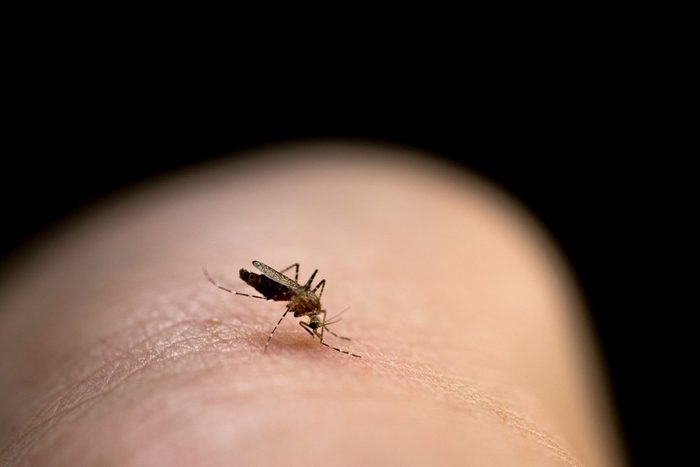The Scientific Reason You Are (Or Aren’t) a Mosquito Magnet

Constantly swarmed by mosquitoes? Here's why.
One of the most irritating aspects of spending time outdoors in the summer is the pesky mosquito. But no matter how you try to avoid them, some people naturally attract mosquitoes more than others.
Your breath attracts mosquitoes
One of the most important facts to remember is that mosquitoes track people down by smell and body odour, according to Bart Knols, PhD, a vector biologist dedicated to the study of mosquitoes. The carbon dioxide people exhale, along with chemicals from the skin, create an “odour plume” that mosquitoes can detect from up to almost 30 metres (100 feet) away, Knols says. “Each person gives off more than 300 chemicals from the skin, more than 100 in exhaled breath,” Knols says.
Your smell attracts mosquitoes
The specific compounds on the skin that mosquitoes respond to vary by species. The yellow fever mosquito and Asian tiger mosquito, for example, respond well to lactic acid from skin. African malaria mosquitoes respond to a blend of fatty acids, according to Knols. Your individual mix of compounds and smells determine how much of a mosquito magnet you are, depending on the mosquito species. The blend of chemicals you produce are only partially in your control. These chemicals depend on your genetic make-up, health status, diet, skin pH, and microflora, Knols says. “Bacteria on the skin break down the compounds that we give off through our pores, and these are the attractive smells,” Knols says. “So it is not actually us that attract mosquitoes, but the bacteria on our skin.”
Although this is a complex and partially understood phenomenon, Knols says that we do all have a unique smell based on our bacteria flora species and the density of bacteria. There are many myths and folklore stories about why some people are more or less attractive to mosquitoes. Some people falsely think having “sweet blood” or your blood group are factors, and others believe taking vitamin B or eating garlic makes people less attractive to mosquitoes—but Knols notes there’s no scientific data backing these claims. (Check out these other secrets about mosquitoes.)
Here’s how to keep mosquitoes away
If you are a mosquito magnet, you’ll want to invest in a proper repellent to apply to all exposed body parts. “DEET, picaridin, or lemon-eucalyptus oil (with elevated concentration of citriodiol) are good repellents,” Knols says. Citronella, another popular option, only protects for a short amount of time. Already been bitten? Consider giving these home remedies for bug bites a try.






